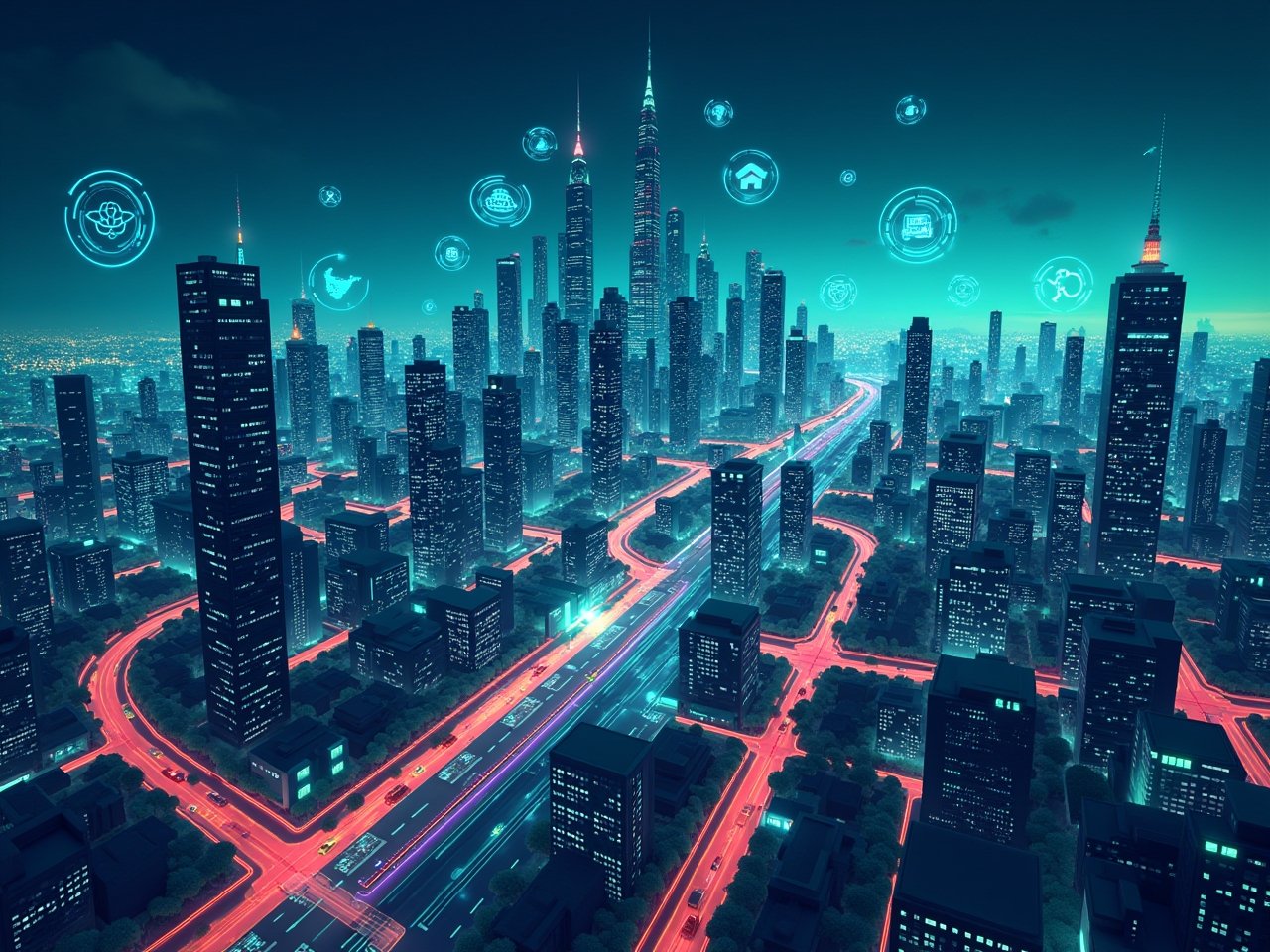The role of AI in building the smart cities of the future is growing at an unprecedented rate. Since this expansion poses countless challenges, from sharp traffic congestion and infrastructure pressures to resource management and public safety. To deal with these complexities and create a more viable, effective, and sustainable environment, cities are increasingly becoming AI.
AI is not just a tool, but a force of transformation, reshaping urban technology and paving the way for real smart cities.
What Defines Smart Cities and Why AI is Key
The use of technology, especially data and artificial intelligence, to improve the quality of life of the population, improve urban processes, and ensure sustainability. It’s an urban ecosystem, and connected systems communicate and learn from each other to make data-driven decisions.
Artificial Intelligence in Urban Planning
AI is the brain of smart cities. It can process and analyze large quantities of data generated by sensors, cameras, smart devices and citizens themselves. The analysis provides practical insights that enable city officials to understand patterns and predict problems before they arise, automate processes and allocate services. Without learning and adaptability from AI, cities may be connected, but they won’t be really smart or responsive.
AI in Transport Management
One of the most obvious effects of AI in cities is transport management. Traffic congestion is a dangerous headache that leads to loss of time, increased pollution, and economic costs.
AI-powered traffic management systems use real-time data from sensors, cameras and GPS to:
- Improving traffic flow: Adjusting traffic timing according to current traffic size and infantry activity. Cities like Pittsburgh have implemented AI systems that show significant reductions in travel and intersection times.
- Congestion prediction: Identification of potential bottlenecks and forecasting traffic accumulation before it happens.
- Improving public transport: Reducing waiting and efficiency times in cities like buses, trains, other public transport routes and timelines based on passenger needs and transport conditions.
- Enabling smart parking: A Driver’s guide to parking spaces to reduce the time of the journey and congestion in the crowded areas.
AI for Future Urban Transportation
In addition to the current transport management, AI is also crucial for the future of cities. The emergence of advanced autonomous vehicles requires artificial intelligence to lead the urban environment safely and efficiently and to communicate with urban infrastructure.
AI and Flexible Infrastructure Building
Building and maintaining aging infrastructure is a main challenge. AI provides predictive functions that can prevent expensive failures and extend the lifetime of critical systems:
- Smart grid: Improves power distribution, anticipates demand, integrates renewable energy more efficiently, and detects abnormal or potential real-time disorders.
- Water Management: AI analyzes data from pipeline sensors to detect early leaks, manage water pressure, predict demand, and ensure resource allocation.
- Predictive maintenance: AI can analyze data from bridges, roads, buildings, and other infrastructure sensors to predict maintenance before failure.
Improving Public Services and Safety Through AI
AI strengthens public services, making them more efficient and adaptive to citizens’ needs:
- Waste management: Improving AI methods of collecting waste based on filling smart bins, reducing unnecessary travel, fuel consumption and emissions.
- Emergency response: Predict potential emergencies, improve the deployment of first responders, and provide real-time information during crises.
- Public safety: AI video analysis helps monitor public spaces, detect unusual activities, identify threats, and support law enforcement, while raising privacy and bias concerns.
Sustainable Urban Development Through AI
Amnesty International supports core principles of smart cities, crucial for sustainable urban development:
- Energy efficiency: AI energy management systems adjust lighting, heating, and cooling based on usage and environmental conditions.
- Pollution monitoring: AI analyzes air and water quality data to identify pollution sources, predict dispersion, and suggest mitigation strategies.
- Improving resources: From optimizing public space use to managing green areas, AI supports overall resource efficiency.
Global Examples of AI in Smart Cities
- Singapore: Widely uses AI in transport, public services, and digital identity development.
- Barcelona: Utilizes AI for waste management, smart lighting, and accident monitoring through sensor data.
- Dubai: With its “Smart Dubai” initiative, the city is leveraging AI to improve government services, enhance public safety through AI surveillance, and reduce energy consumption.
Ethical Considerations and Challenges
- Algorithm fairness: Ensuring that AI systems are fair and unbiased.
- Digital divide: Equal access to technology must be ensured.
- Cost and complexity: Implementing AI infrastructure requires significant investment, planning, and expertise.
The Future of Smart Cities and AI
Looking forward, AI will become even more embedded in urban life, with:
- Sophisticated predictive capabilities
- Greater automation of urban services
- Personalized interactions between citizens and cities
The goal is to create more efficient, sustainable, responsive, and inclusive cities. A truly smart city building trip is taking place, with Amnesty International as a major engine of innovation and transformation. The journey to building truly smart cities is ongoing, with AI serving as a critical engine of innovation and transformation.
This article covers the role of AI in building smart cities of the future, highlighting how AI serves as a critical engine of innovation and transformation. We’ll explore the various ways AI is integrated into urban planning, infrastructure, and services to enhance livability and sustainability in cities.







